As Dundee United fans roared their approval at Sam Dalby’s stunning 19th-minute opener in the recent Sunday lunchtime Scottish Premiership match against Rangers, hope and excitement filled Tannadice.
But before Dalby’s strike caught the attention of the 13,653-strong crowd – and the live TV audience – another kind of messaging was impossible to ignore.
The tangerine and black of United’s QuinnCasino-sponsored shirts clashed with Rangers’ Unibet-backed blue.
It came as the electronic billboards in front of the George Fox Stand rolled out adverts for at least seven different betting companies, each accompanied by the familiar but vague disclaimer: “Gamble responsibly.”
The pulsating match ended 1-3 to Rangers – a reminder that football often feels like a gamble for fans.
But it also raised a question potentially more urgent than the final scoreline: is it time for Scotland’s football clubs to take an ethical stand against gambling sponsorship, or are the commercial benefits simply too lucrative for cash-strapped clubs to ignore?
What’s the position of Dundee United?
Dundee United’s partnership with QuinnCasino has been financially rewarding.
When the deal was announced in 2022, the club’s head of commercial and sponsorship called it “a lucrative agreement.”
The sponsorship, extended again this week, has seen QuinnCasino and Dundee United emphasise their commitment to responsible gambling and community support.
QuinnBet’s managing director also highlighted their Safer Gambling Standard certification from GamCare – the leading supporter for people with gambling addictions.
But with growing concerns about gambling addiction – especially among young people – should Dundee United reassess their position?
The Federation of Dundee United Supporters Clubs said it had no comment to make at this time when contacted by The Courier.
However, several individual Dundee United fans expressed mixed views.
What do Dundee United supporters think?
A 31-year-old secondary school teacher and Eddie Thompson Stand season ticket holder, who asked not to be identified, voiced strong concerns about gambling’s influence on young people.
He believes football normalises betting through constant advertising, making it more appealing.
“I’ve spoken to pupils who place bets using family accounts,” he said.
“Online gambling is especially worrying as it’s so easy to access.”
He also highlighted the mental health risks, arguing that clubs should take a stand.
“I know clubs need revenue,” he added.
“But it feels hypocritical to plaster gambling adverts everywhere and then say ‘please gamble responsibly.’ I’d love to see Dundee United take a stand and show they really care about the community.”
However, 15-year-old Charlie, a fellow season ticket holder, disagreed.
“I see all the betting ads, but they don’t make me want to gamble. Just because QuinnCasino is on United’s shirt doesn’t mean I’ll use them,” he said.
“No one I know at school gambles, so I don’t think it’s an issue.”
Another fan, who wished to remain anonymous, supported gambling sponsorship, citing financial necessity.
“Scottish clubs need every penny. Cutting off that revenue would hurt them.”
While acknowledging gambling ads may be triggering for addicts, he questioned where the line should be drawn.
“Fast food and alcohol ads exist despite their dangers. Personal responsibility plays a role.”
He also suggested upbringing influences gambling habits more than advertising.
He agreed that education is key but felt clubs aren’t in a position to reject gambling money.
He added: “Ideally, clubs would have ‘wholesome’ sponsors, but that’s not the reality.”
Will Scotland follow England’s lead and ban front-of-shirt gambling sponsorship?
This debate isn’t just about Dundee United – it’s part of a wider shift in football.
In England, Premier League clubs have collectively agreed to ban front-of-shirt gambling sponsorships starting from the 2026/27 season.
The move will cost clubs at least an estimated £60 million per year, but they’ve decided ethical concerns outweigh the financial loss.
The ban only applies to the front of shirts, so betting companies can still appear on shirt sleeves and advertising hoardings.
It is intended to protect people from the harms of gambling, especially children and other vulnerable people.
Yet in Scotland, the Scottish Professional Football League (SPFL) has confirmed there are no plans to follow suit.
The SPFL, which last year announced a “record-breaking” five-year title sponsorship deal with William Hill, said that individual sponsorships remain a “matter for each club”.
In a statement to The Courier, an SPFL spokesperson said: “For many SPFL clubs, sponsorship from gambling companies is a significant source of income which helps to support their business models and enables investment in many of the important community activities which clubs undertake.
“As part of our title sponsorship with William Hill we have partnered with EPIC Global Solutions – a global consultancy focused on gambling harm prevention – to launch a multi-year, first-of-its-kind programme on gambling harm awareness across Scottish football for SPFL players, staff, and supporters.
“Individual sponsorships are a matter for each club and there remains no plans for a league-wide proscription of such deals.”
Should clubs wait for the league to act – or take a stand on their own terms?
On Friday February 7, Dundee United “proudly” announced on social media the extension of their principal partnership with QuinnCasino for the 2025/26 campaign.
The club highlights the crucial financial benefits and both parties highlight a responsible partnership stance.
The UK-wide gambling industry overall was worth an estimated £15.1 billion in 2023.
It should be noted that other industries also take online gambling advertising, notably newspapers including The Courier.
But Dundee United wouldn’t be alone if one day they decided to challenge football’s reliance on gambling sponsorship.
Concerns about young people being exposed to gambling adverts have been highlighted in courses run by YGam – a charity which aims to prevent children and young people from experiencing gaming and gambling harms through awareness raising, education and research.
YGam’s courses point out that only a handful of Scottish Premiership clubs currently have front-of-shirt betting partners.
They include Celtic with Dafabet, Rangers with Unibet and Dundee United with QuinnCasino, the online casino wing of QuinnBet.
Yet concerns persist that exposure to gambling adverts, in whatever form, can increase the risk of addiction.
How prevalent is gambling amongst young people?
According to the Gambling Commission’s 2024 Young People and Gambling Report, 27% of young people spent their own money on gambling in the 12 months prior to taking part in the survey.
The most common types of gambling activity that young people spent their own money on were legal or did not feature age restricted products.
These were namely arcade gaming machines, placing a bet for money between friends or family and playing cards with friends or family for money.
Yet these forms of gambling can also lead to some experiencing harm.
According to the study of 3,869, 11 to 17 year olds between January and June 2024, 21% of young people were spending their own money on regulated forms of gambling and 15% on unregulated forms of gambling.
Statistics also showed a rise in young people recorded as experiencing problem gambling.
Last week, new guidance issued by the National Institute for Health and Care Excellence in England said GPs and other healthcare professionals should help identify potential problem gambling, in the same way they look for alcohol and smoking addiction.
What’s next for Dundee United – and Scottish football?
Dundee United did not respond when contacted by The Courier for comment on this issue, as did QuinnCasino.
But as pressure mounts across football, it’s clear that this debate isn’t going away.
Tell us what you think?
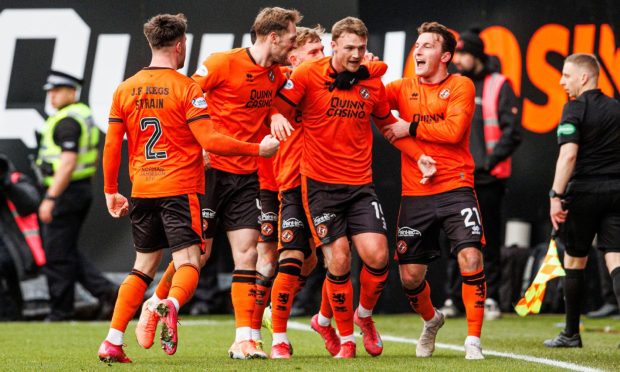
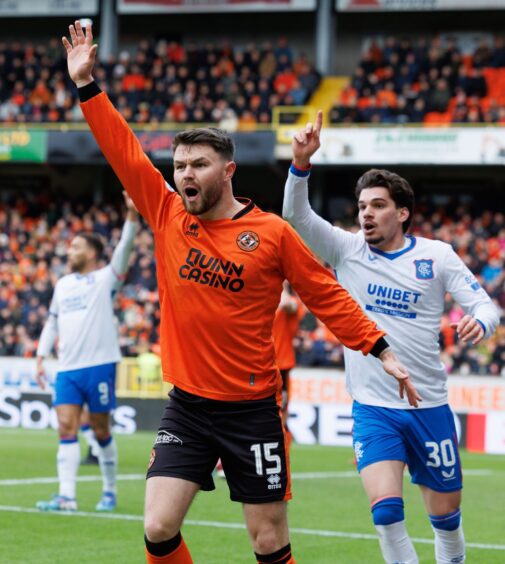
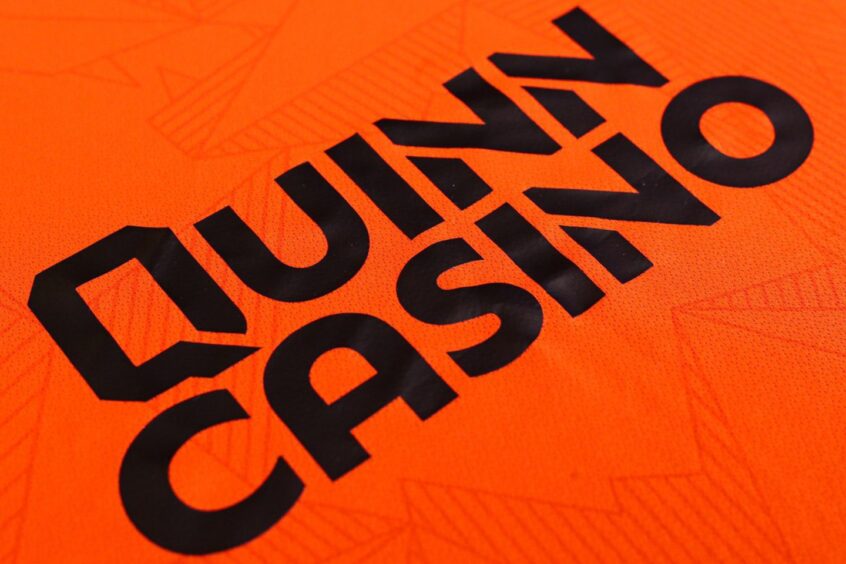
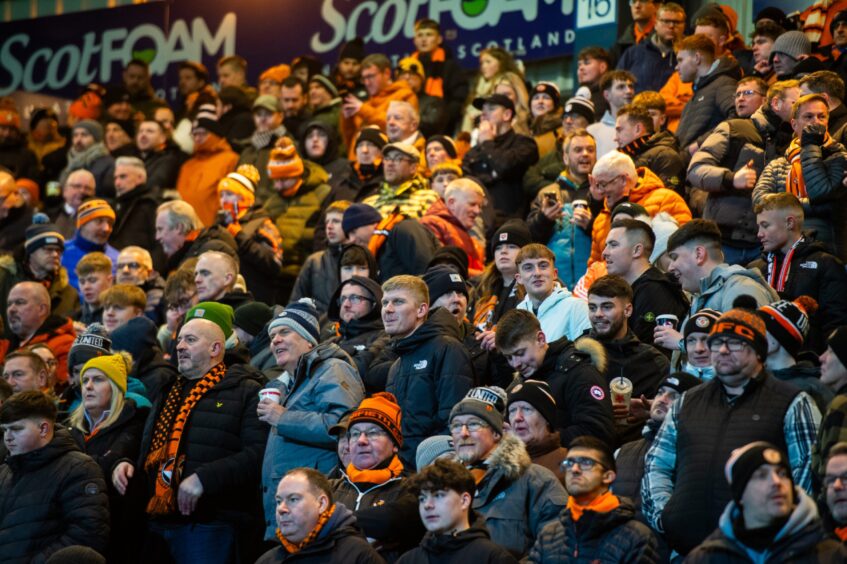



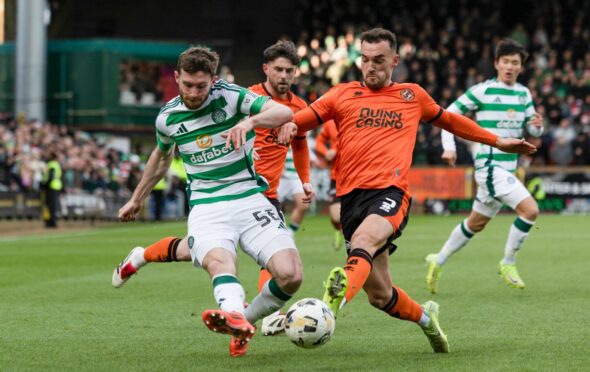

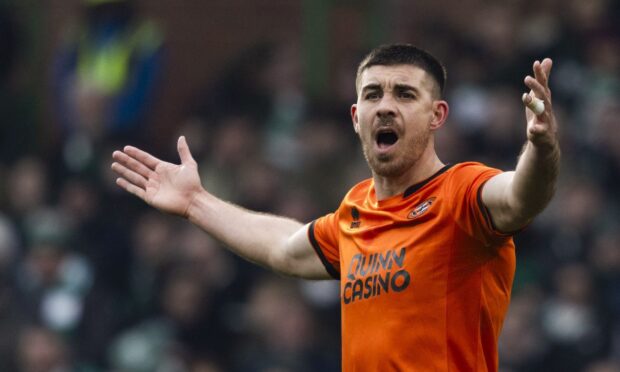



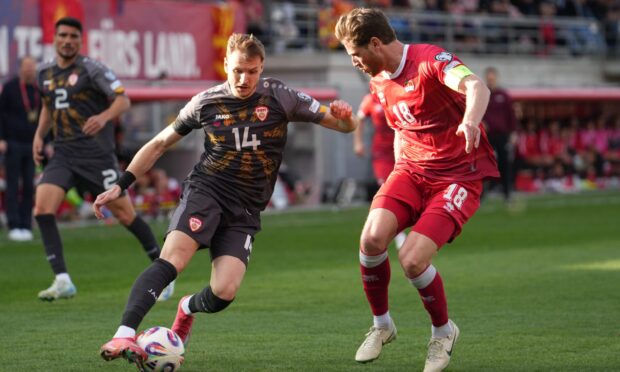



Conversation